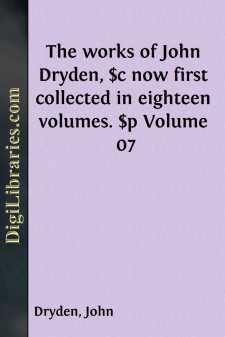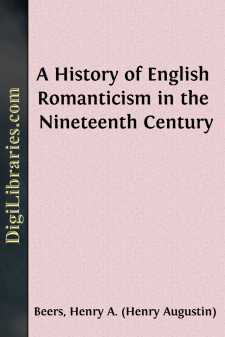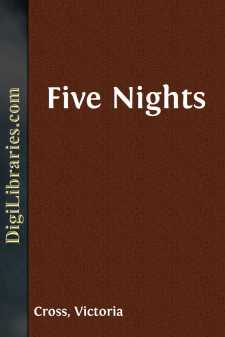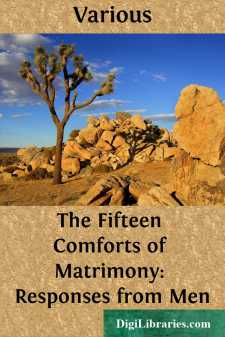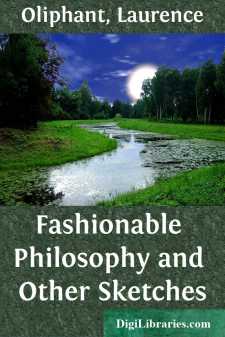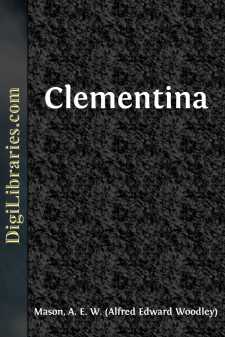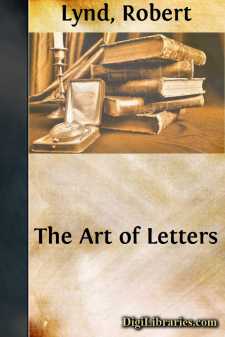Literary Collections
- American 84
- Ancient, Classical & Medieval 14
- Asian 1
- Australian & Oceanian 1
- Canadian 55
- Continental European 121
- English, Irish, Scottish, Welsh
- Essays 160
- General 24
- Letters 46
- Middle Eastern 1
English, Irish, Scottish, Welsh Books
Sort by:
by:
John Dryden
DUKE OF GUISE. A TRAGEDY. Ουτως δε φιλοτιμοι φυσεις εν ταις πολιτειαις το αγαν μη φυλαξαμεναι, τωιαγαθου μειζον το κακον εχουσι. Plutarch. in Agesilao.003In the latter part of Charles the Second's reign, the stage, as well as every other engine which could affect the popular mind, was eagerly employed in the...
more...
by:
Arnold Bennett
THE DOME He wakened from a charming dream, in which the hat had played a conspicuous part. 'I shouldn't mind having that hat,' he murmured. A darkness which no eye could penetrate surrounded him as he lay in bed. Absolute obscurity was essential to the repose of that singular brain, and he had perfected arrangements for supplying the deficiencies of Nature's night. He touched a...
more...
CHAPTER I. Walter Scott.[1] It was reserved for Walter Scott, "the Ariosto of the North," "the historiographer royal of feudalism," to accomplish the task which his eighteenth-century forerunners had essayed in vain. He possessed the true enchanter's wand, the historic imagination. With this in his hand, he raised the dead past to life, made it once more conceivable, made it even...
more...
by:
Henry Coppee
Chapter I. The Historical Scope of the Subject. . . . . . . . . . Literature and Science. There are two words in the English language which are now used to express the two great divisions of mental production—Science and Literature; and yet, from their etymology, they have so much in common, that it has been necessary to attach to each a technical meaning, in order that we may employ them without...
more...
by:
Victoria Cross
CHAPTER I THE TAKU INLET It was just striking three as I came up the companion-stairs on to the deck of the Cottage City, into the clear topaz light of a June morning in Alaska: light that had not failed through all the night, for in this far northern latitude the sun only just dips beneath the horizon at midnight for an hour, leaving all the earth and sky still bathed in limpid yellow light, gently...
more...
by:
Various
The First Comfort of Matrimony.Happy were Man, when born as free as Air,Did he that freedom as he ought, prefer;But the first Thing he sets his Heart upon,Is to be Married, and to be undone:On some youngGirlhe casts his wanton Eyes,And wooes her with fine Complements and Toys.But that's not all—he grows in Love at last,And is impatient till those Joys he taste:Nor do's the wishing Virgin...
more...
FASHIONABLE PHILOSOPHY. Scene—A London Drawing-room. Time—5 o’clock p.m. The afternoon tea apparatus in one corner of the room, and Lady Fritterly on a couch in another. The Hon. Mrs Allmash is announced. Lady Fritterly. How too kind, dear, of you to come, and so early, too! I’ve got such a lot of interesting people coming, and we are going to discuss the religion of the future. Mrs...
more...
CHAPTER I The landlord, the lady, and Mr. Charles Wogan were all three, it seemed, in luck's way that September morning of the year 1719. Wogan was not surprised, his luck for the moment was altogether in, so that even when his horse stumbled and went lame at a desolate part of the road from Florence to Bologna, he had no doubt but that somehow fortune would serve him. His horse stepped gingerly...
more...
by:
Robert Lynd
I.—Mr. Pepys Mr. Pepys was a Puritan. Froude once painted a portrait of Bunyan as an old Cavalier. He almost persuaded one that it was true till the later discovery of Bunyan’s name on the muster-roll of one of Cromwell’s regiments showed that he had been a Puritan from the beginning. If one calls Mr. Pepys a Puritan, however, one does not do so for the love of paradox or at a guess. He tells...
more...


